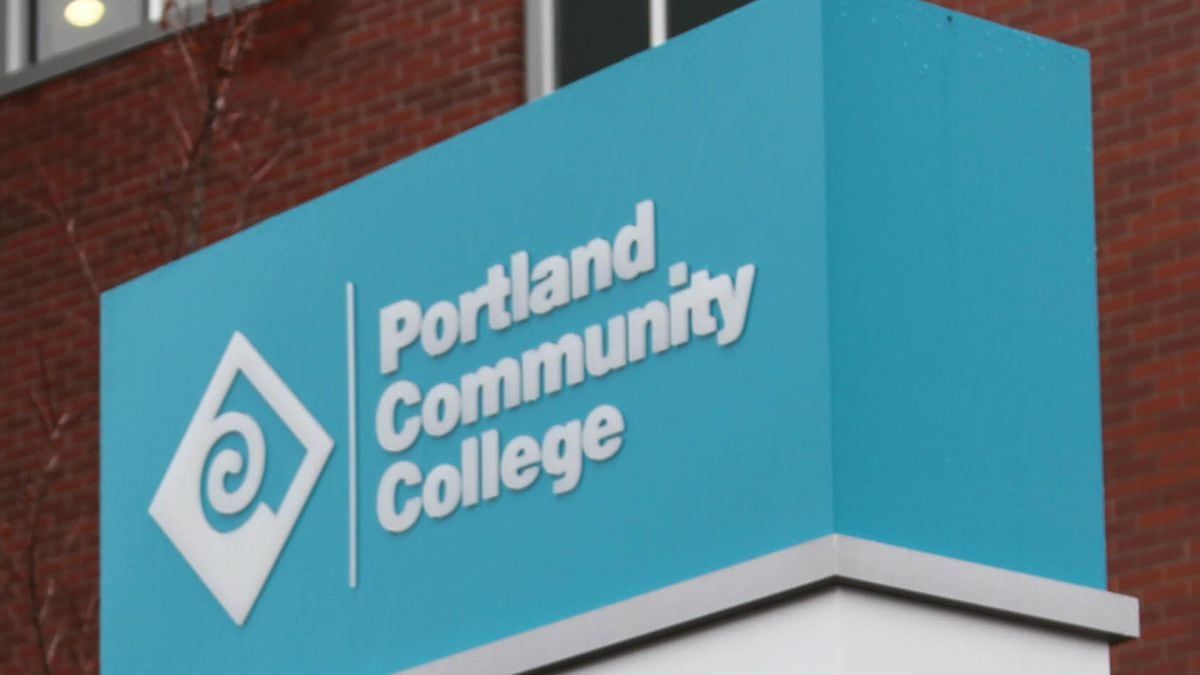As institutions and workplaces continue to return to in-person operations, Portland Community College is doing the same.
This coming fall, the distribution of CCP course delivery is very different from last year.
Next month, 50% of classes at PCC will be an in-person and hybrid format, according to the college. That compares to just 15% of classes taught on campus last fall — mostly career technical classes that had to be taught in person.
But not everyone is happy with it.
“I can certainly understand the desire for things to go back ‘to normal’, but what I want the CCP to consider is that for some of us there will be no return to normal. For some of us, there was never any normalcy in the first place,” Penny Harper, an immunocompromised CCP student, wrote in a statement to the CCP board that she shared with the ‘OPB.
Harper addressed the board during a public comment session Thursday evening.
Another student, Clover Brownell, expressed similar concerns to the board about the dropout of distance learning.
“University was previously inaccessible to me for many reasons, including multiple disabilities, but the availability of remote access granted during the COVID-19 pandemic has changed my life and made higher education possible for the first time,” Brownell said.
Brownell called the college’s return to more in-person classes “an act of violent grassroots discrimination.”
A Portland Community College sign is pictured in Portland, Oregon, May 16, 2016.
Bryan M. Vance/OPB
While many Oregon universities and colleges shifted from online learning to in-person classes and activities last fall, CCP has been slower in its transition.
The college, Oregon’s largest institution of higher learning, opted to keep most of its classes remotely last year. The move was to adhere to the CCP’s “open access mission,” said Kurt Simonds, dean of academic and student affairs, at the time. He said it was an effort to cater to the diverse types of students the college serves.
The majority of CCP students go to school part-time, and many of them are non-traditional students who may be older and have jobs and families. According to data from the 2019-2020 school year, the average CCP student who earned credit was 27 years old.
While the CCP mostly stayed away last fall, other Oregon colleges and universities have begun resuming operations on campus. Smaller community colleges, such as Klamath Community College and Treasure Valley Community College, in Klamath Falls and Ontario respectively, have been able to offer face-to-face classes due to their small campus populations.
Oregon’s public universities also began increasing or restoring in-person classes last fall.
PCC’s move to in-person instruction includes other on-campus services. The college bookstore, library tutoring and testing were in-person this summer and will continue to increase hours once staff are sufficiently staffed, according to the CCP.
CCP public relations director James Hill says the college adheres to its “Thoughtful return policy” as he sails to welcome students back to campus.
Some of these guiding principles include putting health first by continuing to follow COVID-19 related guidelines, providing a diversity of course delivery options, and prioritizing the inclusion of marginalized communities.
Harper, a CCP student, who suffers from an immunosuppressive condition called chronic lymphocytic leukemia, says offering fewer courses completely remotely will have a disproportionate impact on more than immunocompromised and disabled students. She said it would also affect working students and those who rely on public transportation or live far from campus.
“I ask PCC to continue prioritizing and expanding the availability of online and distance learning courses,” Harper said. “I think it’s less important that we physically come together in classrooms to learn, and more important that we can learn where and how we are.”
CCP public relations director Hill said the college has an accommodations policy that meets its commitment to accessibility during the return to in-person operations.
“The CCP is required to allow remote teaching/telecommuting or make other reasonable accommodations for students and employees who are at higher risk of serious illness from COVID-19,” the policy reads. “Each situation will be assessed individually to determine how a reasonable accommodation can be made, and whether it needs to be in person or if it can be done remotely.”

